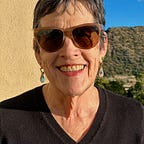One and One-Half Cheers for NYC’s City Artist Corps
Last week, New York Mayor Bill de Blasio announced the launch of the City Artist Corps, a $25 million initiative that will give around 1,500 New York artists funding this summer to mount “performances, public artworks, pop-up shows through New York City’s Summer Rising program, new murals and canvasses, and more,” according to the official press release.
Officials cited the 1930s WPA (Works Progress Administration) of the New Deal and the 1970s CETA (Comprehensive Employment and Training Act) arts program as their inspirations, naming artists as “one of the hardest hit communities during the pandemic,” and lauding “the transformative power of culture.”
No details have as yet been released other than the amount of funding and the fact that this is a summer program. So it’s not yet known how to apply or who will qualify (particularly if need will be a criterion or if funding will go to prosperous as well as hard-hit artists).
What’s good about it?
The City Artist Corps will put money in the pockets of the 1,500 artists selected to participate. It will increase this summer’s public cultural events and activities in all five boroughs. As New York City Council member Jimmy Van Bramer put it, “Many cultural workers have been out of work for more than a year, with few paid opportunities to showcase their talents. This community and their work is an essential part of this city’s recovery. I look forward to our streets being full of dance, music, murals, and joy.”
What’s not so good about it?
The WPA is growing in popularity with politicians as a symbol of creativity and of the kind of let’s-all-pull-together spirit of the New Deal, moving on from the Great Depression. But the actions they’ve taken (or called for) are too short-term to live up to the image.
In meaningful, collaborative, participatory community-based arts work, skilled community artists work with others to express concerns and aspirations, building awareness, engagement, and enjoyment through art and culture. This work is about relationship. It takes time to establish reciprocity, mutual respect, ethical engagement and care, to share skills and negotiate processes and outcomes. A huge problem in support of community-based cultural work in the U.S. is the short-term, outcome-oriented addiction of funders, who tend to want quick “deliverables.” (François Matarasso and myself discussed this funding situation in the most recent episode of our podcast, “A Culture Possibility.”)
By definition, the City Artist Corps will favor “deliverables” — quick public art projects, speedy artistic processes to deliver performances before summer ends, and so on. As Cultural Affairs Commissioner Gonzalo Casals said, “Starting this summer we’ll put artists to work in communities, collaborating with and inspiring their fellow New Yorkers…mak[ing] sure the Summer of New York City is a Summer of Art.” This type of program deposits resources, but can’t build community because that takes time.
It’s been a continuing problem that so many U.S. funders prefer a short-term timeline, with most grants lasting for a single year. I’d be cheering much harder if this City Artist Corps were even a year-long program. But it’s just a single summer! As I wrote above, this will have a noticeable impact in number and visibility of short-term summer projects and events. The perpetual downside of this approach, however, is that the people who take part can feel seduced and abandoned: here’s something really great and we want to you to be part of it and give it your best but come September, fuggedaboudit!
What should it be?
I’ve written and spoken extensively about a new WPA. You can read about what may be possible (with links to many other resources) in “It’s About Time: We Can Help Create A New WPA,” published a few months ago. Or try “The Prospect of a New WPA Wrap-up: Working for The Common Good,” the last segment of an international dialogue about public service employment.
If you’re in a TL:DR mood, here are a few salient points from the latter essay:
It’s past time for the public sector to put people to work for the common good: unemployment is at levels unequaled since the Great Depression. Thousands are unemployed or underemployed and need help. Under current conditions, many people want to do something meaningful, especially after a time of great sacrifice. The needs are huge: to strengthen physical infrastructure, create a just transition to clean energy, and repair our badly damaged social fabric….
As in past programs such as the WPA and CETA, the approach that’s most apt to succeed both ethically and practically is a universal program aimed at many types of work, not special pleading for artists. In fact, treating artists as especially deserving tends to backfire as elitist or fail for lack of cross-sector political support. So the best approach will bring artists together with many others to advocate for a universal program….
We are talking about substantial long-term investment in recovery and rebuilding, given the toll taken by the pandemic, climate crisis, and increasing awareness of racial injustice — not a rescue, but a sustained intervention, a stimulus. In the US, a key impediment is entrenched political opposition (just as Republicans opposed extending unemployment supplements on the grounds it would discourage people from working, they’ve long opposed any form of public service employment on equally specious and heartless grounds). And a key challenge is how to move forward nevertheless.
Wouldn’t it be great for New York City to recognize these truths and take steps to put them into practice? One modest step would be to extend the program for a full year. If $25 million covers a summer program, $100 million is all it would take to fund a full year. To put that in perspective, New York City’s current annual budget is $88.2 billion. So $100 million would be 1/882 of that. Anyone have the mayor’s ear?
“We Can Work It Out,” Stevie Wonder.
